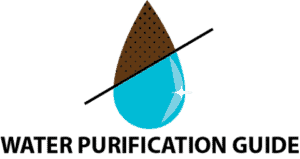One of the biggest concerns pet owners have to deal with is sudden changes in the diet of their pets. Birds are especially sensitive creatures and can show an aversion to drinking water from time-to-time. So, what exactly is causing your bird to stop drinking water?
Pet birds may not drink water due to the weather, water quality, medication in the water, and diet. These issues are easily solved by maintaining water hygiene, increasing number of water bowls, changing their diet, giving medication orally, or consulting a veterinarian.
That was the fast answer. Now, let’s discuss the 4 reasons in detail that can cause your feathered friend to avoid drinking water and what you can do to solve it.
Reasons Why Your Bird Isn’t Drinking Water
These are four generalised reasons why your bird has stopped drinking water. If your bird is a parakeet, budgie, cockatiel, lovebird, African gray parrot, or a finch we have more specific information for each of these birds further along this article – so keep reading, or jump down to the section you need.
1. Bird’s Water Is Stale or Contaminated
It’s important to regularly replace the water in your bird’s bowl as well as clean the container. Water must be replaced at least once a day and the frequency of water changes must be increased as the weather gets warmer.
Sometimes the reason is pretty straightforward – the container you use to offer your bird water might be dirty. Your chirpy buddy could be taking a bath in its bowl or leaving droppings in it; nobody wants to sip on faeces-flavoured water.
Remember, a bowl can look clean, but bacteria, algae and even mold can be present without you seeing it. Make sure you frequently wash their drinking container properly, and not just rinse and refill it.
On the other hand, it could also be because you are not replacing your pet’s water regularly enough. Stale water can accumulate dirt, odor and unusual taste which can cause, not just birds, but any person or animal to avoid drinking it.
2. The Weather
In general, birds consume less water when they are exposed to cooler weather. They are less likely to consume a lot of fluids in the fall and in winter compared to the warmer months.
This is not a matter of concern generally because it is a very common trend observed among a lot of birds, and even in humans.
3. Medication
If you have been a bird owner for long enough to consult a veterinarian a couple of times, you would be aware of medication that sometimes needs to be mixed into the water you offer them.
Often, your pet notices something is not sound about the water and chooses not to consume it as they assume it’s contaminated.
Your regular veterinarian will know the best way to work around your little buddy’s picky behaviour, so it would be best if you consult them when it comes to this case specifically.
4. Diet Provides Enough Fluids
If you regularly feed your pet bird warblers fruits and vegetables which contain relatively high amounts of water, it is already supplementing their fluid intake.
Your bird is receiving the water it needs from the solid food you offer.
In the case where your bird is eating regularly but you can’t seem to notice it drinking water, there is likely no need to worry. If your pet is facing a health issue, often it would refuse to eat food. By rule of thumb, the consumption of solid food is a very good sign your tiny friend is healthy.
Common Pet Birds And What’s Causing Them To Avoid Drinking Water
Parakeet/Budgie
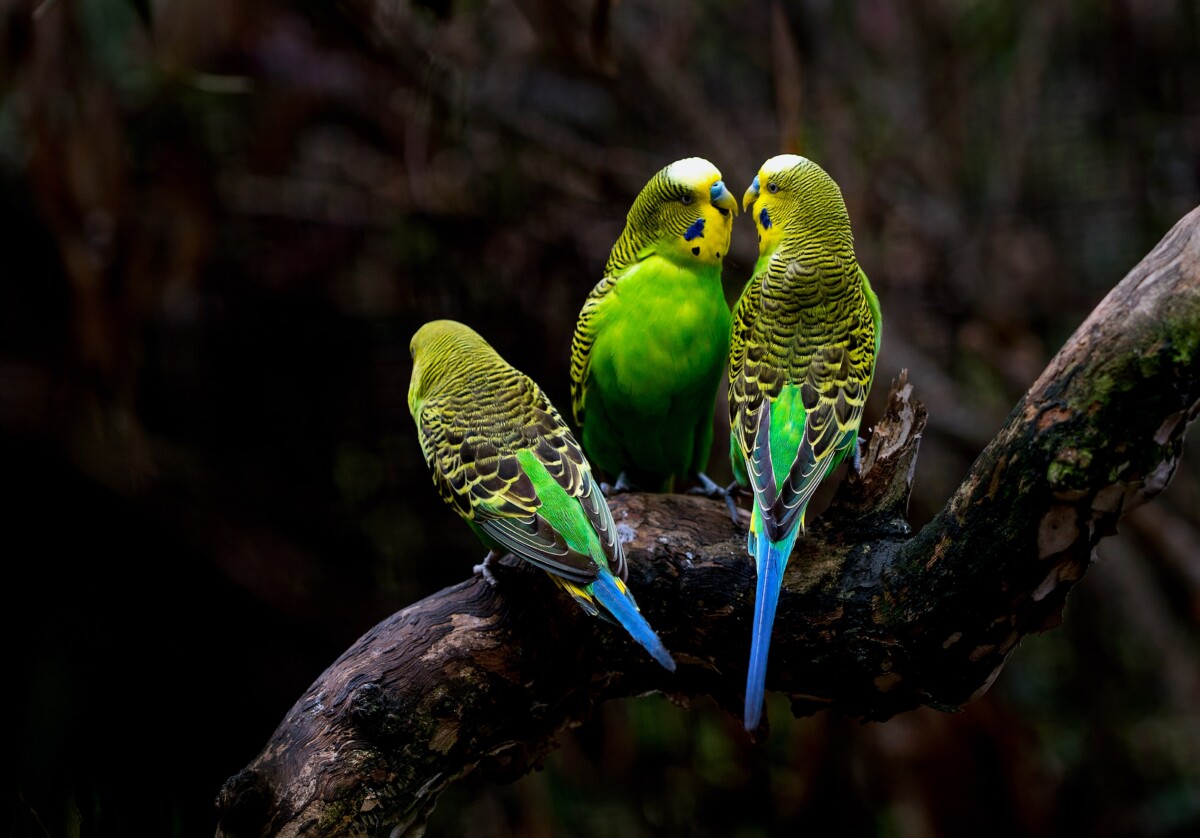
Parakeet/Budgie
| Reason Not Drinking | Solution |
|---|---|
| Very picky about cleanliness of the water they consume. | Replace with fresh water regularly. Use at least three water bowls so they have another option if one gets dirty. |
| Some do not like the taste of tap water even if it’s clean and fresh. | Add a few drops of honey in the container and mix it with the water. |
| If your parakeet/budgie does not drink water for a long time – along with appetite loss – it could be facing a health problem. | Approach your veterinarian immediately. |
Lovebirds
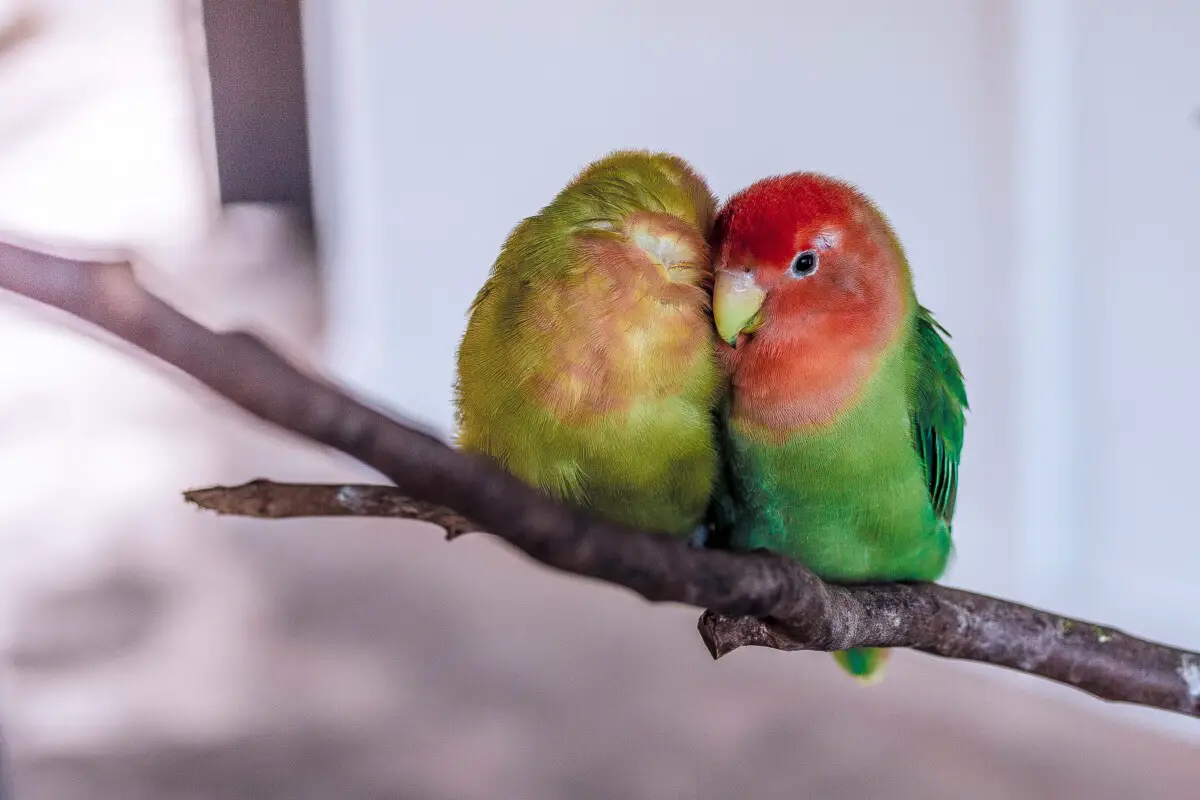
Lovebirds
| Reason Not Drinking | Solution |
|---|---|
| Lovebirds get stressed easily while transitioning into new environments which can cause them to lose appetite and their desire to drink. | Cover up the enclosure/cage on a few sides so that the bird feels more secure and leave it alone for a few hours. |
| If aversion to water lasts an unusually long time, it could be an illness. | Contact a veterinarian. |
Cockatiel
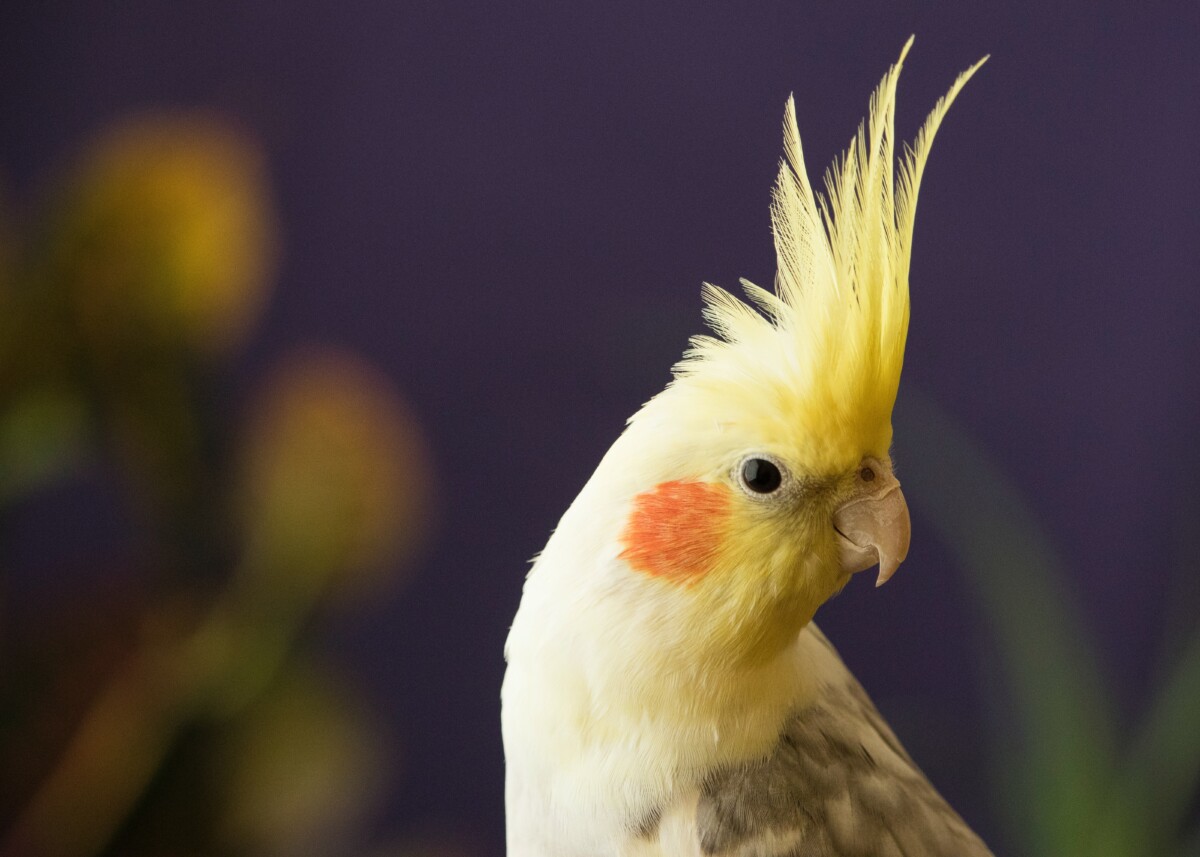
Cockatiel
| Reason Not Drinking | Solution |
|---|---|
| Young cockatiels may need to be taught where to get water from. | Drip water out of the container while they are watching so that they are aware where to get water from. |
| If your cockatiel is not drinking water at all, it might have an underlying health issue. | Consult a veterinarian. |
African Gray Parrot
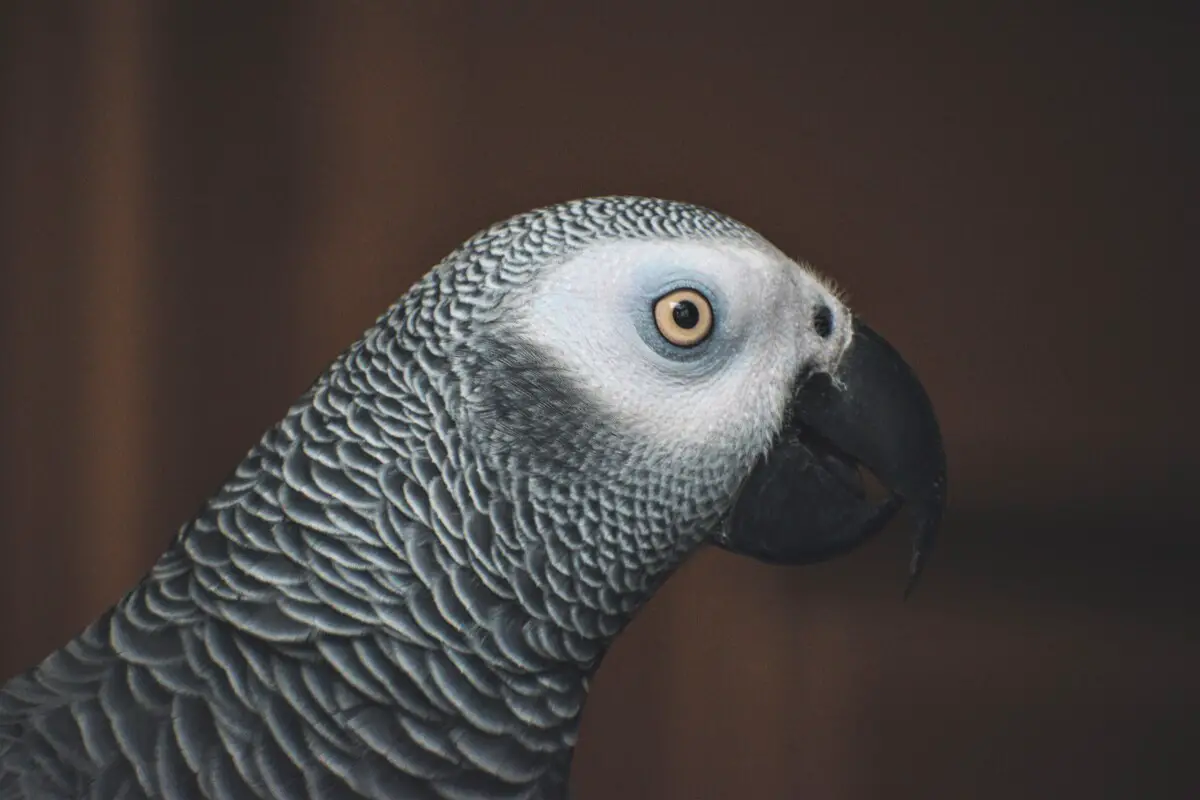
African Gray Parrot
| Reason Not Drinking | Solution |
|---|---|
| They are prey birds and thus have an instinctual fear of getting attacked at the waterhole, causing them to stay on guard. | Leave them be. They will drink when they are comfortable. |
| African Grays consume very tiny amounts of water over the course of the day, so it can be difficult to judge if they are completely avoiding water. | If you’re worried, give them some berries, fruit, or veggies to chew on. This typically provides all the water they really need. |
Finch
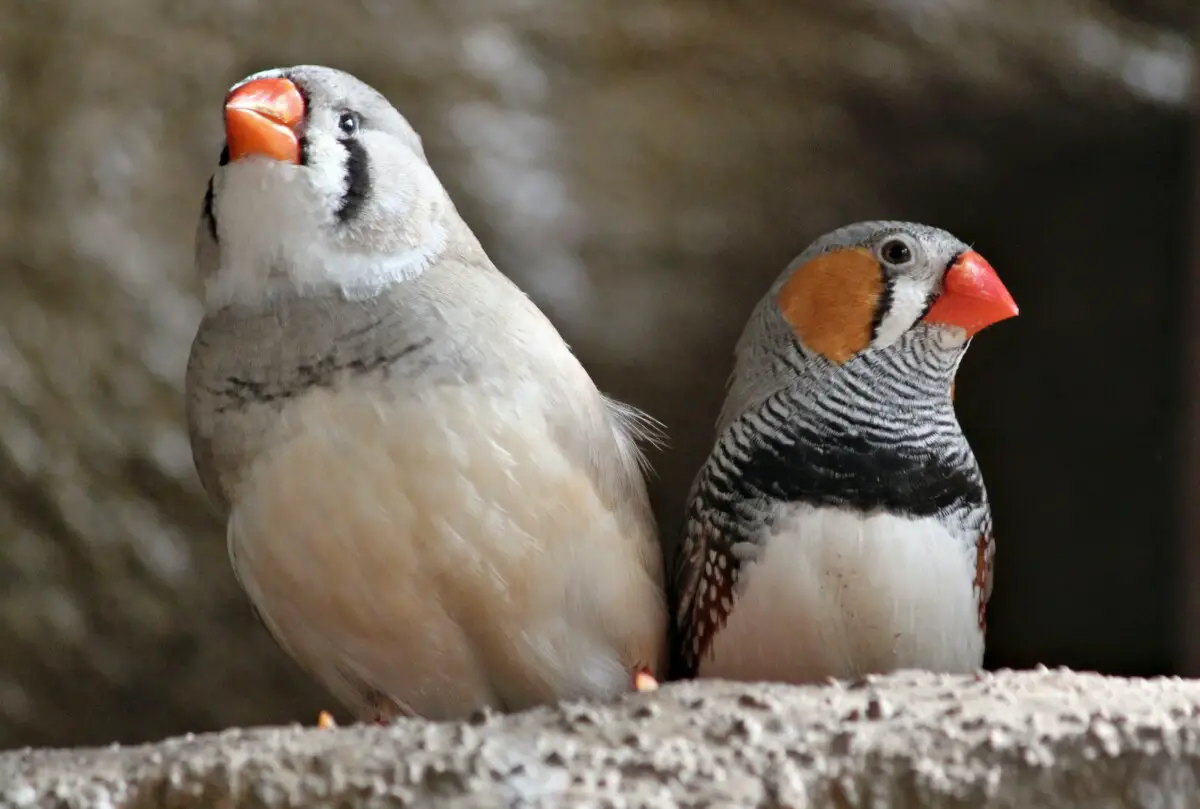
Finch
| Reason Not Drinking | Solution |
|---|---|
| Finch thrive in small flocks and are cautions about taking a drink when there are no other birds around. | Keep more than one finch at a time. This helps them feel more comfortable and at ease, especially in a big cage. |
| You may only have one water bowl, which can quickly become dirty and foul as finches love to splash and play in shallow water. | Keep a minimum of three water bowls in the cage filled with fresh water to give them more options. |
How To Get Your Bird To Drink Water
Show Them Where It Is
Young birds often cannot figure out on their own that they can get water from a specific container or location. One of the ways you can teach it is by dripping water from the bowl or moving it around while your curious friend watches.
After a while, the bird will get the idea that water can always be found in a certain bowl and location.
Use Water Additives
If your pet does not seem to drink water, despite knowing where to get it from, you could entice it by adding honey, fruit juices or sports drink in diluted quantities into the water.
Supplementing your birds water with electrolytes if you think they may be dehydrates is perfectly ok.
Give Them Space
In some cases, you might just need to leave them alone.
Prey animals, including most pet bird species, are at their most vulnerable while eating or drinking so they just might not be comfortable to do it when you are around.
Use More Than One Bowl
Some birds prefer to have multiple options where they can take a drink.
If you own flocking birds, such as finches or parakeets, it is best to leave at least three sources of water for them to drink from and play in.
Give Them Fruit And Veg
Many bird species can get a lot of their water from their diet. If your bird is happy to munch on a piece of fruit or veg, then this may be all they really need.
However, some birds can be picky and don’t like fresh fruit or veg. A really great alternative is to give them a treat that contains berries such as Kaytee Blueberry Treat Sticks with Superfood (Available from Amazon).
Medication In The Water
Medication in the water can also make them not want to drink. If you think your feathered friend is avoiding water because of the medication your veterinarian advised you add to its water, it is best to consult them on a way to get around this.
Your veterinarian will know ways to get your bird to drink the fluid and medication it needs.
Sometimes it’s best to simply use a soft tipped syringe to manually give your bird the medication.
Use Distilled or Filtered Water
There may be a metal or organic compound in your tap water that your bird does not like. You can try giving them filtered (e.g., reverse osmosis) or distilled water to see if they prefer it. But make sure you are also supplementing them with minerals, which are typically not present in distilled or filtered water.
How Long Birds Can Go Without Water
An incredible 60-70% of a bird’s body is made up of pure H2O – the exact numbers vary depending on the species, muscle content, fat content etc. And generally, birds can lose up to 15-20% of their body water through normal body processes and to its environment. This means that your pet will need to be hydrated regularly.
Typically, a bird will start experiencing weakness and fatigue within the first 24 hours of not consuming any fluids. And depending on the size of the bird, it can succumb to dehydration within that period.
The time a bird has before dehydration becomes fatal is inversely proportional to the temperature. For instance, small birds such as finches can survive up to 10 hours before extreme dehydration settles in 86°F weather. However, that shrinks to 2-3 hours in summer heat above 100°F.
Generally speaking, relatively bigger birds such as parrots, pigeons etc. can survive for 2 days or more when deprived of water under mild temperatures.
How Often Birds Need Water
Unlike mammals, birds don’t have sweat glands, so they need less water to remain hydrated. However, they do lose the body water content through droppings and respiration.
Most small birds need to drink water at least twice a day to replace the lost water. However, this can fluctuate depending on their diet.
Insectivorous birds get most of the water they need from the preys they consume. Whereas, seed-eating birds would require relatively more water due to their dry diet.
Drinking is not the only necessity that birds have. Birds need to bathe regularly, especially in extreme weather conditions. Bathing is an important aspect when it comes to maintaining body temperature and feather.
Birds use water to dampen and remove dirt which also makes it easier to preen their feathers – helping them remain waterproof and insulated during winter. And during summer, it makes up for their lack of sweat glands by helping their bodies cool down.
The Bottom Line
Water is just as essential to your bird as it is to you and so is the cleanliness and taste of it. By rule of thumb, do not offer water to your pet that you yourself wouldn’t drink. And if you think you’ve done everything right and yet your chirpy buddy does not seem to drink water, reach out to a professional immediately.
